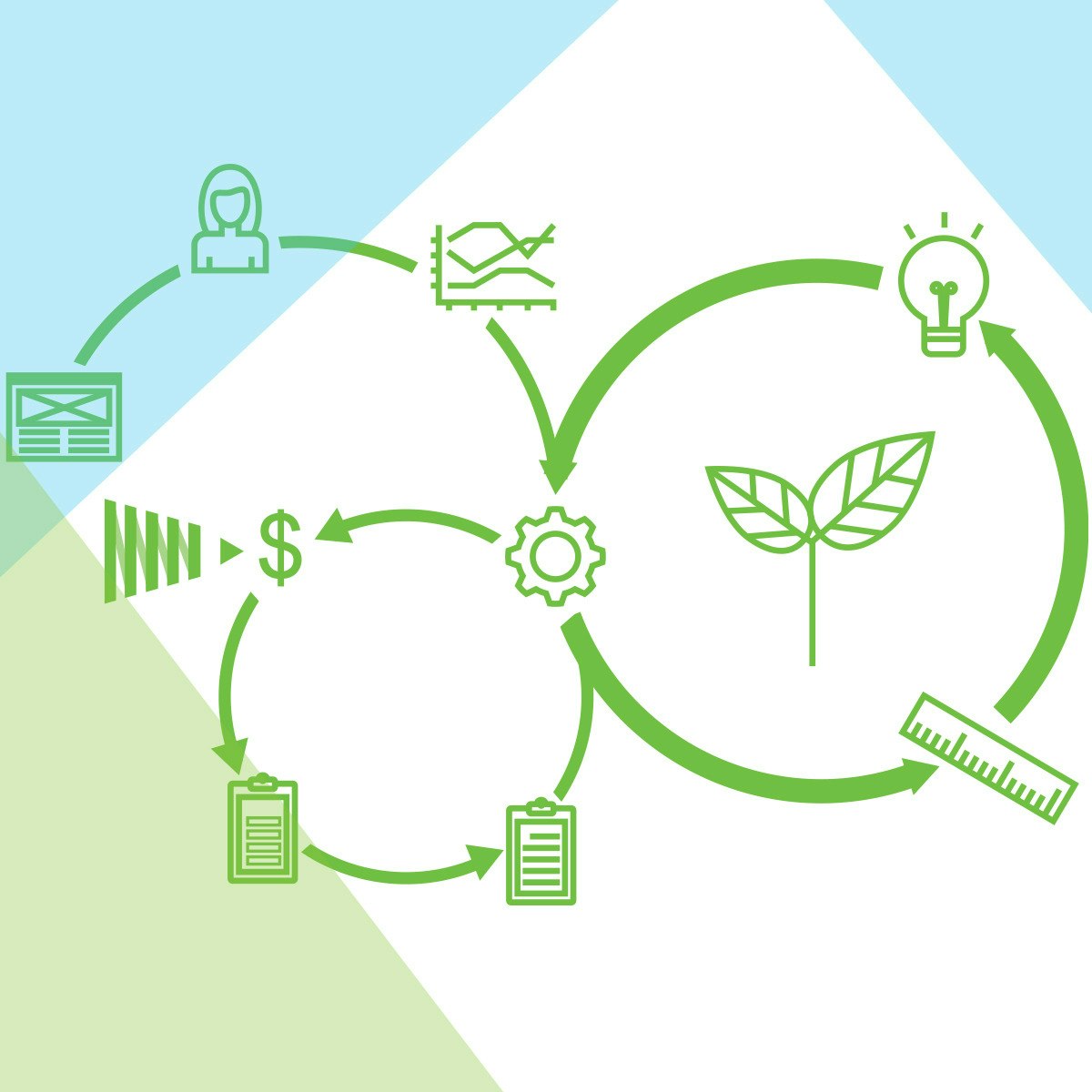Back to Courses









Entrepreneurship Courses - Page 12
Showing results 111-120 of 222

Fundamentals of Sales and Marketing, with Goldman Sachs 10,000 Women
This free online course is one of 10 courses available in the Goldman Sachs 10,000 Women collection, designed for entrepreneurs ready to take their business to the next level.
This course will support you to develop your marketing strategy and build your brand as your business grows.
You will explore a range of useful marketing tools and learn how to use analytics to measure success in the context of your own business growth.
You will gain a clear and comprehensive understanding of the marketing and sales cycle. You will use this cycle as a foundation to develop your marketing plans and sales process.
By the end of this course, you will understand how to identify the right marketing tools to reach your target market, and how an effective marketing plan can convert into sales and revenue for your business.
The 10,000 Women course collection offers a truly flexible online learning experience. You have the freedom to approach the program in any way that works for you – take any course, or combination of courses, to tailor your learning journey to your individual business growth needs. If you choose to take all 10 courses, you will explore all the key elements of your business and develop a thorough plan for your business’s growth.
You can find out more about the Goldman Sachs 10,000 Women collection in the FAQs.
Sustainable Innovation for Subsistence Marketplaces
This course focuses on understanding subsistence marketplaces and designing business solutions for the billions of people living in poverty in the global marketplace. To develop understanding of these markets, we use exercises to that enable learners to view the world from the eyes of subsistence consumers and entrepreneurs, facilitate bottom‐up understanding generated by participants, and provide insights from extensive research. More broadly, the course uses the context of extreme resource constraints to learn about the bottom-up approach pioneered through the Subsistence Marketplaces Initiative and apply it in broadly. A parallel project will focus on understanding a specific need in a subsistence marketplace, and designing a solution and an enterprise plan for implementation.
You will be able to:
• Develop an understanding of subsistence marketplaces
• Design solutions for subsistence marketplaces
• Develop enterprise plans to implement solutions for subsistence marketplaces
• Apply the bottom-up approach for subsistence marketplaces and other contexts
This course is part of Gies College of Business’ suite of online programs, including the iMBA and iMSM. Learn more about admission into these programs and explore how your Coursera work can be leveraged if accepted into a degree program at https://degrees.giesbusiness.illinois.edu/idegrees/.

How to Validate your Startup Idea
Starting a new business begins with an idea that needs to evolve through experimentation, iteration and interactions with people. This course is for existing and potential entrepreneurs who are looking for guidance and support to make their ‘great idea’ a reality. In addition to reviewing the basic principles of entrepreneurship, this course guides you through the process of actively validating your idea in the market. We encourage you to identify and communicate good opportunities and to create and capture value from these opportunities. By working through the course and completing the activities you’ll learn how to get feedback that systematically tests different parts of your business idea. You will learn how to do this through interacting with potential customers, suppliers, partners and investors outside the course. Along the way, you will also become more confident in pitching your idea. By the end of the course you should have a validated business idea that you can start right away.

Assess for Success: Marketing Analytics and Measurement
Assess for Success: Marketing Analytics and Measurement is the fifth of seven courses in the Google Digital Marketing & E-commerce Certificate. This course explores marketing analytics practices and tools. Digital marketing and e-commerce professionals are expected to analyze data from various sources (such as web pages, digital marketing channels, and e-commerce sites) and use them to gain customer insights. You’ll create media plans and set performance goals. You’ll learn how to measure, manage, and analyze data from marketing campaigns using Google Analytics, Google Ads, and similar tools. Then, learn how to adjust a marketing budget according to insights extracted from key metrics. You’ll use A/B test results to optimize a campaign and identify metrics that define a campaign's success. You will be able to analyze and visualize data and insights in spreadsheets and prepare presentations to share campaign progress or results with stakeholders.
Google employees who currently work in the field will guide you, providing hands-on activities and examples that simulate common digital marketing and e-commerce tasks, while showing you some of the best tools and resources used on the job.
Learners who complete the seven courses in this program will be equipped to apply for entry-level jobs in digital marketing and e-commerce. No previous experience is necessary.
By the end of this course, you will be able to do the following:
- Plan and allocate the spending of marketing budgets
- Describe the unique role of performance goals and key performance indicators (KPIs) in marketing campaigns
- Describe how tools like Google Analytics and Google Ads are used to measure website and ad campaign performance
- Describe how to determine the return on investment (ROI) or return on ad spend (ROAS) of a marketing project
- Prepare, conduct, and analyze the results from an A/B test to optimize a marketing campaign
- Apply spreadsheet features like sorting, filtering, and pivot tables to prepare data to be shared
- Create charts in spreadsheets for visualization of metrics

Intellectual Property for Entrepreneurs
For aspiring and active entrepreneurs, this course focuses on the opportunities and challenges of intellectual property. Intellectual property is a commonly discussed, often misunderstand, element of entrepreneurship and law. Knowing how to create and manage patents, copyrights, trademarks, and trade secrets is a valuable skill for entrepreneurs and business leaders.
Regardless of size and industry, a business’s intellectual property is often more valuable than its physical assets. Companies invest tremendous resources in developing innovative new products and services. Intellectual property law discourages competitors from immediately profiting from another’s invention, and provides incentives for continued innovation.
"Intellectual Property for Entrepreneurs" is one of three courses in the "Legal Aspects of Entrepreneurship Specialization" by Coursera and the University of Maryland. This specialization explores the critical legal and business issues entrepreneurs face as they build and launch a new venture. Learners examine real-world scenarios and address legal and business issues from ideation to all of the important junctures along the path to success. Significant attention is placed on new venture formation, intellectual property management, and contracts and financing arrangements.

Financing and Profiting from Innovation for Corporate Entrepreneurs
This course is for aspiring or active corporate entrepreneurs who wants to understand how to secure and manage funding for their corporate venture. We will demystify key accounting and financing concepts to give corporate entrepreneurs a guide to developing the business case for their ideas, and securing funding to translate ideas into reality.
This course focuses on four key areas:
• Learning the fundamentals and how to create financial statements for new ventures within the corporate environment;
• Examining valuation techniques for understanding how to assess and grow the value of the corporate venture;
• Exploring the different sources of internal and external financing for the corporate venture; and
• Applying lessons learned in the course to structure a funding deal and pitch the corporate venture.
Try this course for FREE at https://www.coursera.org/learn/corporate-entrepreneurs-financing

Foundations of Digital Marketing and E-commerce
This is the first of seven courses in the Google Digital Marketing & E-commerce Certificate, which will equip you with the skills you need to apply to entry-level roles in these fields. People who work in digital marketing and e-commerce help their organizations attract new customers, engage customers through various digital channels, and drive transactions like purchases and customer loyalty. In this course, you’ll explore entry-level jobs in digital marketing and e-commerce and identify the roles and functions that those jobs play within an organization. You’ll also learn about the marketing funnel and how it shapes the customer journey.
Google employees who currently work in the field will guide you, providing hands-on activities and examples that simulate common digital marketing and e-commerce tasks, and helping you build your skills and prepare for the job.
Learners who complete the seven courses in this program will be equipped to apply for entry-level jobs in digital marketing and e-commerce. No previous experience is necessary.
By the end of this course, you will be able to do the following:
- Define the fields of digital marketing and e-commerce
- Describe the job responsibilities of an entry-level digital marketing coordinator and e-commerce analyst (and similar job titles)
- Summarize how this program will help prepare you for a career in digital marketing and e-commerce
- Identify the roles and functions that digital marketing and e-commerce play within an organization
- Understand the customer journey and the function of journey maps
- Explain the concept of a marketing funnel
- Understand the elements and goals of a digital marketing and e-commerce strategy

Becoming a changemaker: Introduction to Social Innovation
This free 6 week course is for anyone who wants to make a difference. Whether you are already familiar with the field of social innovation or social entrepreneurship, working for an organization that wants to increase its social impact, or just starting out, this course will take you on a journey of exploring the complex problems that surround us and how to start thinking about solutions.
We will debunk common assumptions around what resources are needed to begin acting as a social innovator. We will learn from the numerous examples of social innovations happening all over the world. You will be challenged to get out of your comfort zone and start engaging with the diverse spaces around you. By the end of the course, you will have formed your own approach to social innovation, and you will have begun to develop the concepts, mindset, skills, and relationships that will enable you to start and evolve as a changemaker.
You will be able to purchase a Verified Certificate if you wish to show evidence of your achievements, but this is optional, and you may apply for Financial Aid if you are unable to pay the certificate fee.
The Bertha Centre for Social Innovation and Entrepreneurship co-created this course with RLabs, a social movement ‘born-and-bred’ in Bridgetown, Cape Town that is now active in 22 countries. The movement empowers youth through innovative and disruptive technology by teaching them vital skills and providing much needed support and a sense of community. Advocating and supporting initiatives such as RLabs forms part of the Bertha Centre’s mandate. The Centre is a specialised unit at University of Cape Town’s Graduate School of Business, and is the first academic centre in Africa dedicated to advancing social innovation and entrepreneurship.
You can view the course trailer at www.youtube.com/watch?v=TcWYG64WO20
Tweet about this course using the hashtag #socinnMOOC

The Search for Great Ideas: Harnessing creativity to empower innovation.
Where do great business ideas come from? We all have compelling business concepts that we've been thinking about for years. In this course we will explore how to use observational tools and other techniques for idea generation and we will talk about how to evaluate the good ideas from the bad. The goal is to settle on a business idea that you are not only passionate about but also has real market application.
At the end of this course learners will be able to:
-build a resource inventory from which they can assess and create market opportunities;
-pursue market opportunities consistent with personal passions and capabilities; and
-triage potential ideas in terms of which have the greatest potential for commercial and personal success.

Structure: Building the Frame for Business Growth
Just like when building a house the foundation for your business provides the framework for success. A business built on weak structure will struggle to succeed. We'll address some of the most pressing issues that you as a business owner must face while constructing the proper framework for your business.
Specifically at the end of this course you will be able to:
- create and evaluate your company's financial documents;
-complete the documents and regulatory procedures to create a legal business entity;
- protect your intellectual property;
-develop a management team;
Popular Internships and Jobs by Categories
Find Jobs & Internships
Browse
© 2024 BoostGrad | All rights reserved